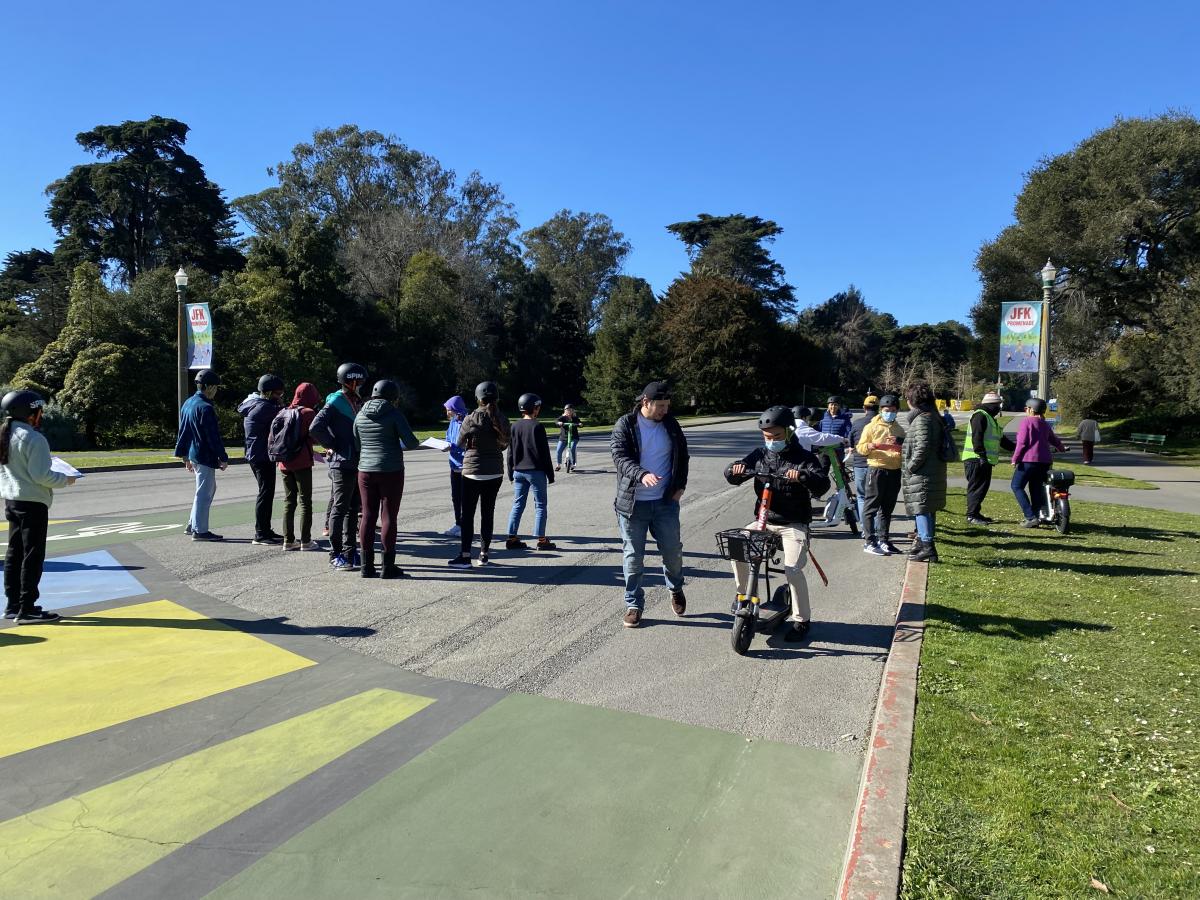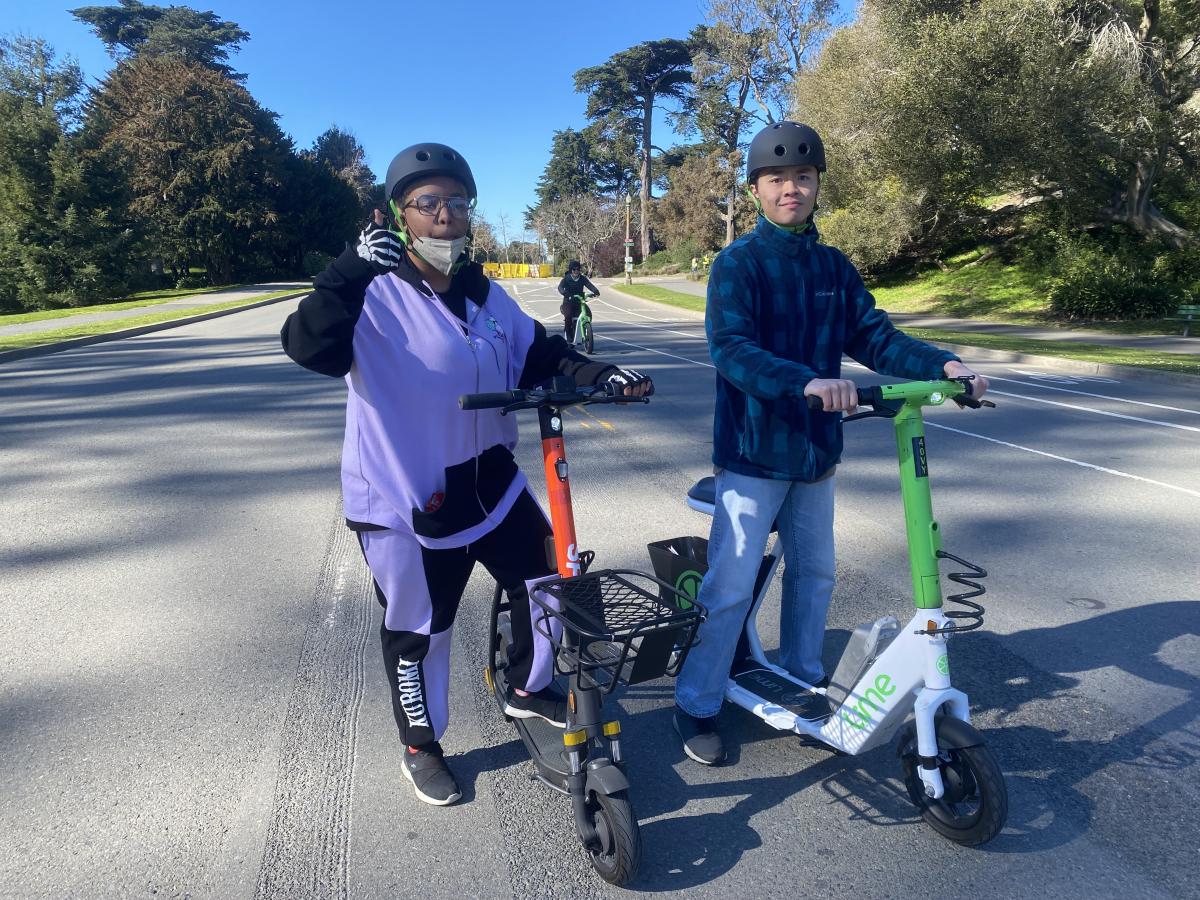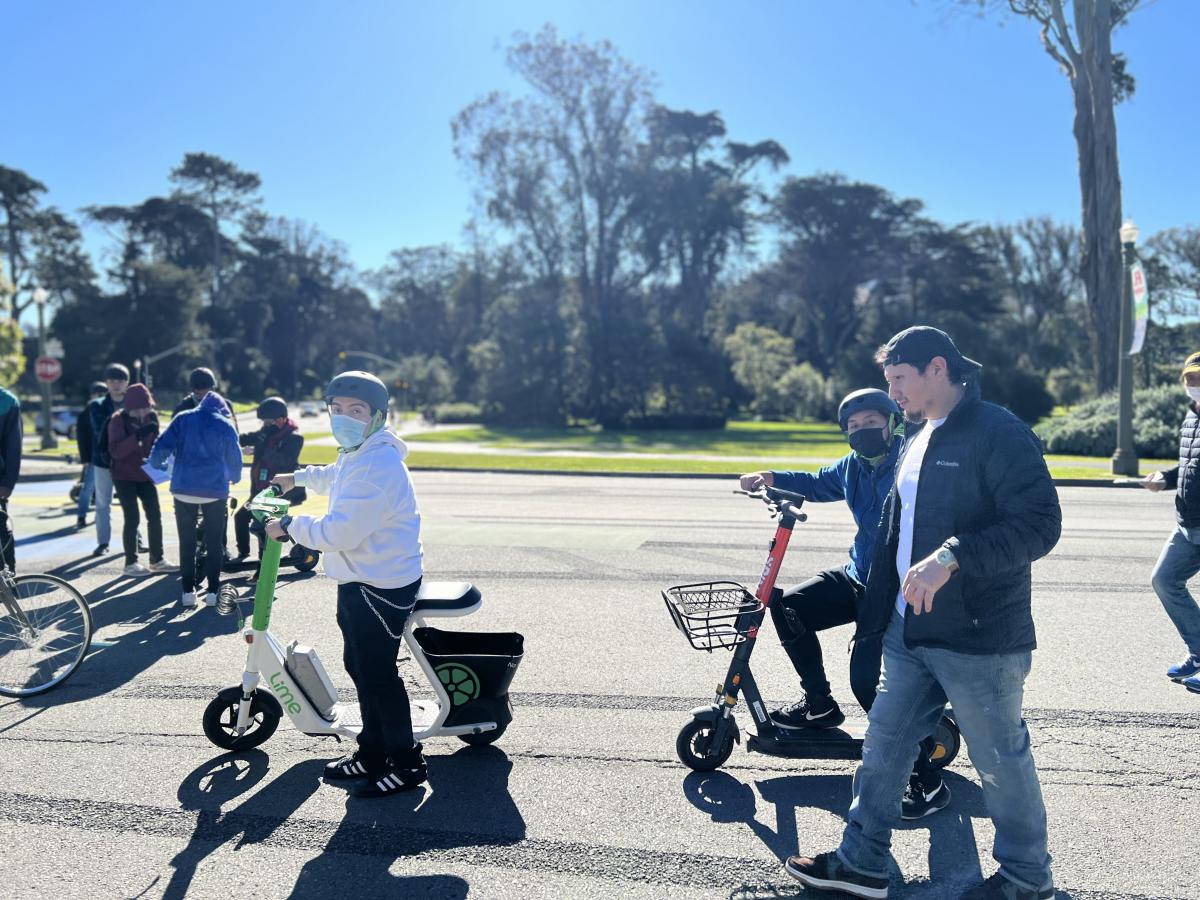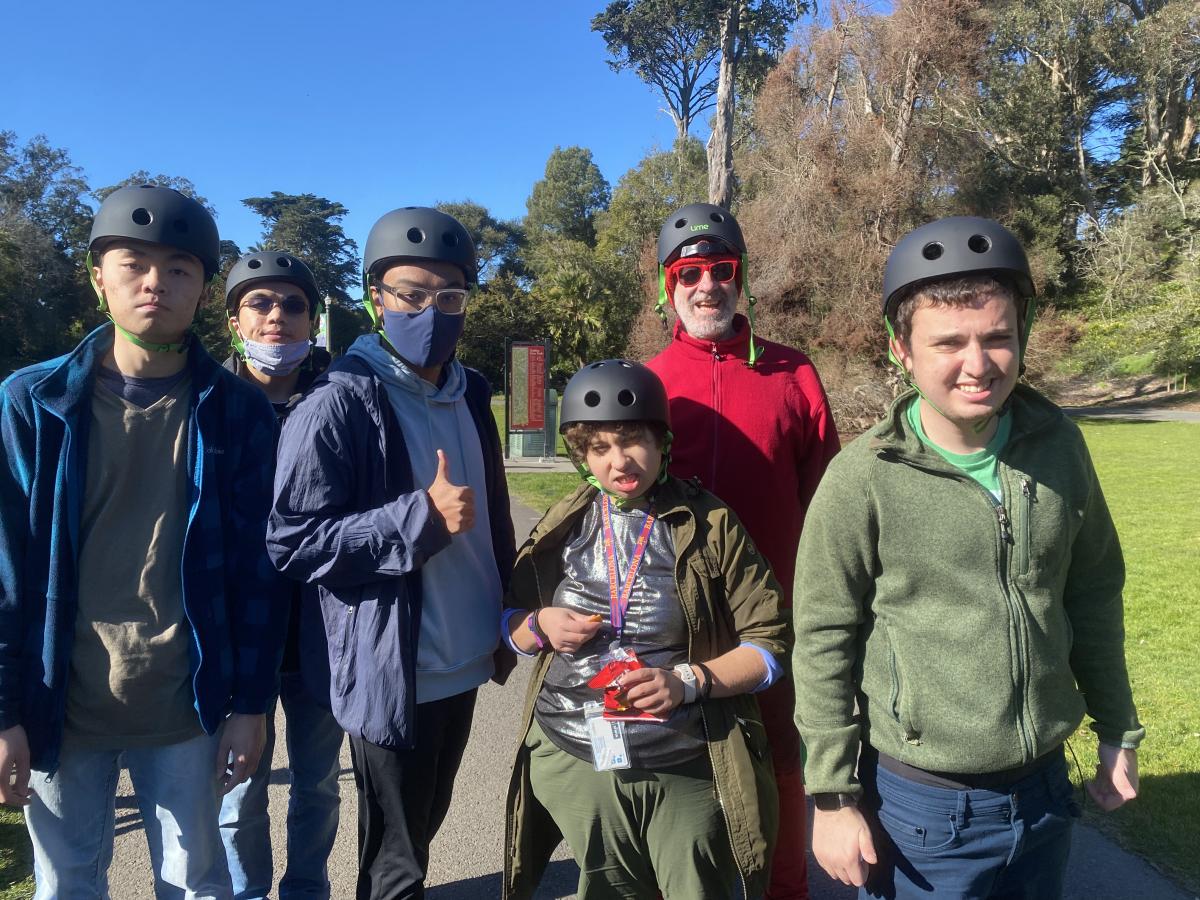By Maddy Ruvolo
On a recent Monday in Golden Gate Park, 28 students and staff from AccessSFUSD gathered on JFK Drive to test-ride adaptive scooters. The group took turns riding adaptive devices from two scooter companies permitted to operate in the city, Lime and Spin. Adaptive devices are designed to meet the needs of riders with a variety of disabilities and provide additional stability features, such as a seat, a wider base, and an additional wheel. After trying the scooters, the students shared their feedback about a variety of design elements, including the wheels, seat, throttle, basket location, foot plate width, and the ease of getting started.
 Adaptive scooter demo in Golden Gate Park
Adaptive scooter demo in Golden Gate Park
Students embraced the opportunity to ride scooters and provide feedback. AccessSFUSD is a community-based program for students 18-22 with disabilities. Located across 11 sites in San Francisco, the program focuses on teaching functional life skills within the community setting. Developing advocacy skills is a key component of the program, and students enthusiastically shared their input with the scooter companies. Heidi Seretan, Special Education Department Head at AccessSFUSD: The Arc said, “It was a glorious day to ride and advocate on car-free JFK in Golden Gate Park, San Francisco’s own backyard.”
One student shared they had an “amazing first time” riding a scooter and described it as “the best.” Students also gave thoughtful constructive criticism, explaining when a particular seat height or device design didn’t work for them. And one student said that they “need more practice... but I'm getting the hang of it.”
 Thumbs up to adaptive devices
Thumbs up to adaptive devices
Staff from Spin and Lime were on-hand to help students get rolling and to answer any questions. Both scooter permittees expressed their appreciation for the comments from AccessSFUSD students. Lime shared that they “enjoyed hearing directly” from the students and that their “hardware team has already begun reviewing students’ feedback to find ways to continue to refine our vehicles.” Spin echoed the importance of the students’ input, noting that “the direct feedback we gather from local San Francisco students and residents on our adaptive program is critical to continuously improving and more equitably serving the entire community.”
 AccessSFUSD students enjoying scooters
AccessSFUSD students enjoying scooters
This is the second time the SFMTA has partnered with AccessSFUSD and scooter permittees to host an adaptive scooter demonstration, with the first event held in fall 2021. Any organization interested in partnering on a similar adaptive scooter event should get in touch with Maddy Ruvolo with our Accessible Services team by emailing Maddy.Ruvolo@sfmta.com.
 Students ready to ride
Students ready to ride
The SFMTA has prioritized adaptive scooters as part of our Powered Scooter Share Permit Program. The three scooter permittees — Bird, Spin and Lime — are required to provide adaptive scooters as a minimum of 5% of their on-street fleet. The permittees also offer different types of adaptive devices through their Complementary Adaptive Programs, which provide longer-term adaptive rentals free of charge through scheduled drop-off and pick-up. We encourage all who are interested to try an adaptive scooter, and stay tuned for more scooter demonstration events coming later this year!
Published February 15, 2023 at 05:24PM
https://ift.tt/VIkrYaP
Comments
Post a Comment